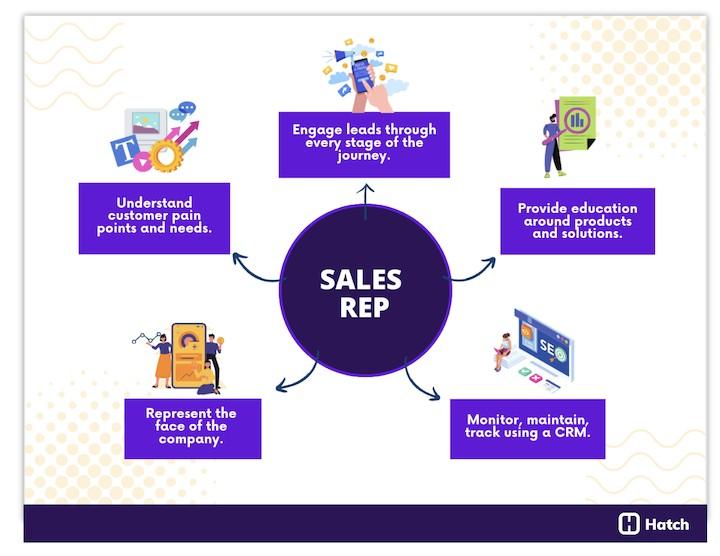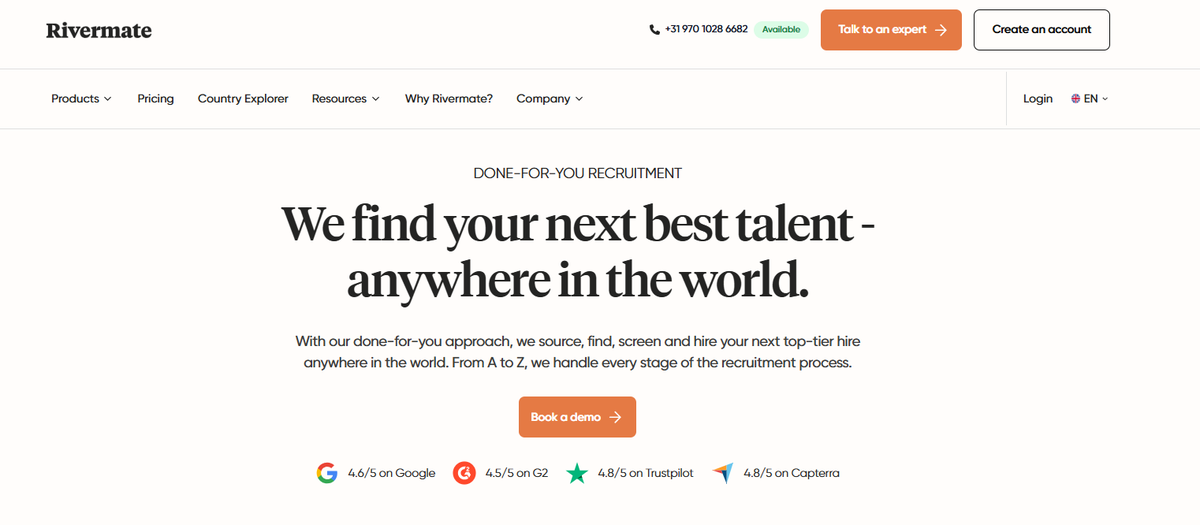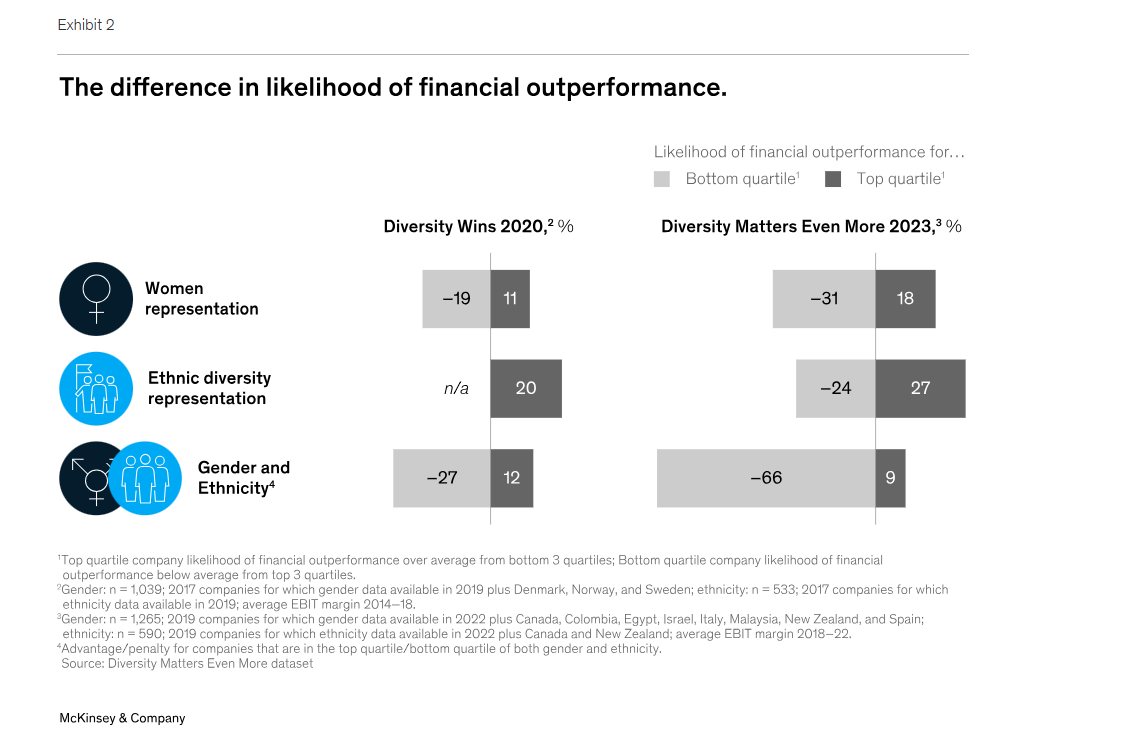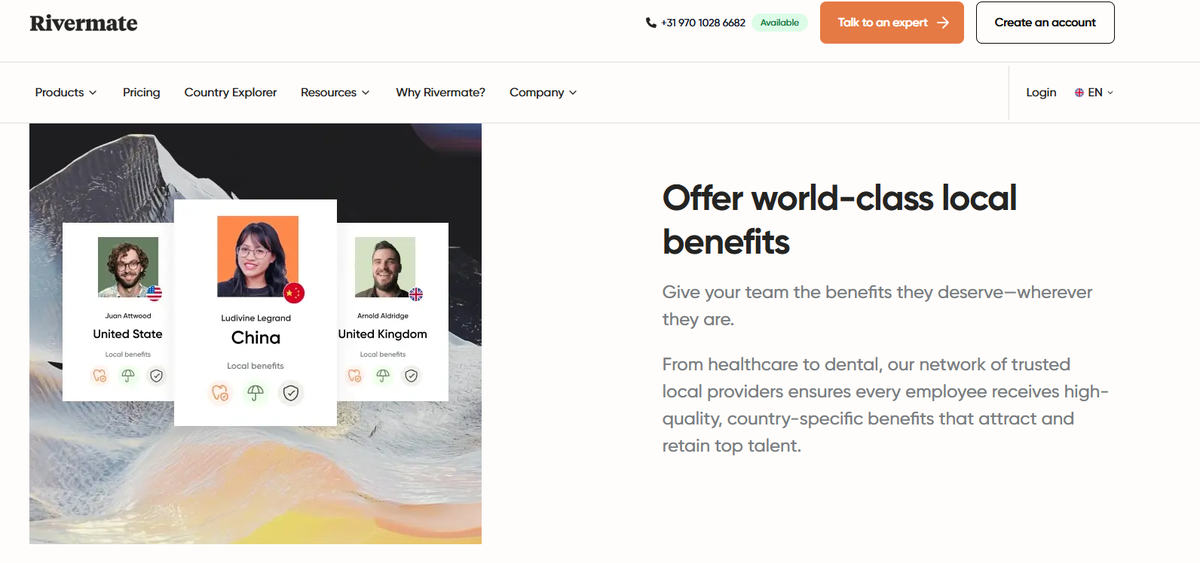TL;DR:
-What remote sales reps are: Professionals who sell your product or service without being tied to a physical office, giving you instant market reach
- Why hire remote sales staff: Access talent worldwide, cut overhead, and avoid entity setup costs while scaling into new regions
- Building a remote sales team: Focus on structured recruitment, compliant contracts, and tailored onboarding to create a strong foundation
- Managing sales teams remotely: Use clear KPIs, timezone-friendly communication, and modern payroll platforms to drive accountability
- How Rivermate helps: Compliantly hire and manage sales staff in 150+ countries with one platform for contracts, payroll, and legal support
How to Hire a Remote Sales Team in 2026
Hiring the right sales talent is one of the toughest challenges for companies expanding into new markets. Local recruitment often restricts access to top performers, slows growth, and drives up costs.
Owl Labs’ recent data shows that by the end of 2026, fewer than 55% of employees will work exclusively from a traditional office. The flexible “3-2” hybrid model—three days in the office, two days remote—is emerging as the preferred structure. This shift is also driving investment in remote collaboration tools, giving flexible organizations a clear edge in attracting and retaining skilled professionals.
Companies that stick to traditional hiring models face delays in market entry, compliance hurdles, and missed revenue opportunities. Onboarding and managing sales staff across time zones without the right systems can also drain momentum and efficiency.
A remote sales team addresses these challenges by widening the talent pool, reducing costs, and enabling faster expansion into new regions. With a structured hiring strategy and the right support, businesses can build compliant, motivated, and high-performing sales teams across borders.
This guide explores what remote sales representatives do, why global teams are effective, and how to successfully hire remote sales staff and manage sales teams remotely in 2026.
What is a remote sales representative, and what do they do?
A remote sales representative is a professional responsible for selling a company’s products or services while working outside of a traditional office or regional hub. Instead of being based at headquarters, they operate from anywhere in the world—whether that’s their home office or a co-working space.
Unlike inside sales teams who typically focus on one domestic region, remote sales staff often cover multiple markets. Their role blends the same core functions as in-house sellers—prospecting, pitching, negotiating, and closing deals—but with added flexibility to adapt to time zones, languages, and cultural nuances.
![Visual chart showcasing the different responsibilities of a sales rep][image1]
 Caption: Visual chart showcasing the different responsibilities of a sales rep
Caption: Visual chart showcasing the different responsibilities of a sales rep
Key responsibilities usually include:
-
Lead generation and prospecting: Identifying potential customers through online research, cold calls, outbound campaigns, and networking platforms like LinkedIn
-
Customer outreach: Connecting with leads via email, phone, or video calls, tailoring messaging to local markets
-
Presentations and demos: Delivering virtual product demonstrations that address customer pain points
-
Negotiation and closing: Handling objections, aligning on pricing, and securing contracts—all remotely
-
Account management: Maintaining relationships with clients post-sale to drive renewals, upsells, and referrals
-
Reporting and analytics: Updating CRMs and sales management software, forecasting sales, and sharing performance insights with sales managers
Hiring remote sales staff enables companies to bypass geographic limitations, accelerate market entry, and remain competitive where customers expect fast, localized engagement.
How to hire a remote sales team successfully
Building a high-performing remote sales team requires more than posting a few ads for remote sales jobs. It involves careful planning across recruitment, compliance, onboarding, and long-term management. Here’s a structured approach that scaling companies can follow:
1. Define goals and sales structure
Start with clarity:
- Market priorities: Identify which regions need immediate coverage (e.g., APAC, LATAM)
- Role mix: Decide between SDRs for lead generation, Account Executives for closing, and Account Managers for retention
- Performance metrics: Set measurable KPIs such as monthly pipeline targets, deal velocity, or revenue quotas
This foundation keeps the hiring process focused and avoids overstaffing or role duplication.
2. Hire remote sales staff strategically
The recruitment process sets the tone for how effective your remote sales team will be. Expanding into new regions isn’t just about finding available, qualified candidates. It’s about identifying professionals who understand local buyers and can adapt quickly to digital-first selling.
Key considerations include:
- Accessing global talent pools: Go beyond your immediate geography to source candidates with proven experience in target markets
- Assessing virtual selling skills: Prioritize sales reps who are comfortable with CRMs, video calls, and asynchronous communication: skills that are critical in remote environments
- Factoring in language and culture: Look for professionals who can communicate fluently with prospects in their region and adapt to cultural expectations during negotiations
 Caption: Rivermate recruitment page
Caption: Rivermate recruitment page
| 👉 Rivermate’s global recruitment service can accelerate this process by sourcing pre-vetted sales candidates from target markets, cutting time-to-hire dramatically while keeping every step compliant with local hiring laws. |
GitLab, for example, operates the world’s largest all-remote workforce, with 1,300+ team members across 65+ countries. Its hiring process emphasizes candidates suited for remote work, focusing on asynchronous communication, autonomy, and structured onboarding.
Leadership also runs open Q&A sessions to keep the team connected, a deliberate approach that has supported GitLab’s growth as a fully remote company.
3. Handle compliance from day one
Compliance is often the hardest part of hiring across borders:
- Local labor laws differ widely in areas like termination, benefits, and working hours
- Misclassifying sales reps as contractors instead of employees can lead to audits and fines
- Payroll, taxes, and statutory benefits must be processed accurately in each jurisdiction
However, with Rivermate as an Employer of Record, companies can bypass entity setup, hire sales staff legally in 150+ countries, and run payroll on a single platform. All contracts are compliant and updated automatically as laws change.
 Caption: IT Svit client testimonial for Rivermate
Caption: IT Svit client testimonial for Rivermate
4. Create a consistent onboarding process
Onboarding determines how quickly reps become productive:
- Run structured virtual training covering sales playbooks, CRM usage, and product knowledge
- Provide country-specific HR and compliance guidance so reps understand entitlements
- Pair new hires with mentors or sales managers to establish early engagement
Remote teams succeed when they have seamless digital workflows:
- Customer relationship management (CRM) software for pipeline and customer visibility
- Video conferencing for pitches and internal collaboration
- Scheduling tools to balance meetings across time zones
For scaling and mid-sized companies, combining these with Rivermate’s employee dashboard—which includes payroll status, expenses, and leave tracking—keeps everything in one system for both reps and sales managers.
6. Build transparent compensation and career paths
Retention in sales hinges on fairness and recognition:
- Align compensation with local benchmarks and offer clear incentive structures
- Track commissions digitally to avoid disputes
- Provide career progression paths so remote reps don’t feel sidelined compared to headquarters staff
With Rivermate, for example, payroll transparency is built in: reps receive payslips in their local currency, while managers see real-time employer costs across markets in one dashboard.
The advantages of a remote sales team
Hiring remote sales staff offers companies more than just headcount flexibility. It’s a strategic way to scale internationally, reduce costs, and improve agility. Here are the main advantages:
1. Access to a global, wider talent pool
Remote hiring removes geographic limits, giving companies the ability to recruit the best people for the job, not just those within commuting distance of headquarters.
For sales roles, this is especially valuable. Local knowledge of buyer behavior, cultural nuances, and language can make the difference between a missed opportunity and a closed deal.
Recent research reinforces this shift. JobsPikr noted that companies advertising remote roles attract four times more applicants than onsite-only positions, a sign that talent is actively seeking flexible work options.
By opening the door to global applicants, businesses gain access to a broader and more diverse pipeline of sales professionals.
2. Faster market entry without entity setup
Traditional expansion often means registering a legal entity abroad, which can take months and cost thousands of dollars in fees.
For instance, the main costs of starting and running a Dutch BV or private limited company include:
- Registration fee of €82.25 (effective January 1, 2026) with the KVK Business Register
- Notary fees, typically ranging from €500 to €1,000
- Accounting and bookkeeping fees, usually €600 to €1,800 per year
On the flip side, companies can enter new markets in weeks, not months, when they choose to hire remote sales professionals.
3. Cost efficiency and flexibility
Remote teams reduce the need for office leases, relocation packages, and overheads. Global Workplace Analytics data estimated that companies can save $10,000 per remote employee annually on real estate and operational expenses. Flexible hiring also allows businesses to test markets with smaller sales teams before committing larger resources.
4. Improved diversity and customer alignment
Remote hiring widens your access to diverse talent, bringing unique perspectives that enrich problem-solving, creativity, and alignment with customers. This isn't just a feel-good statistic. It’s backed by evidence.
Research from the Wharton School shows that making roles remote can increase female applicants by 15%, and applications from underrepresented minorities by 33%. This suggests remote models are not only opening positions to more people but also to a broader array of backgrounds and experiences.
On the performance front, McKinsey’s 2023 analysis found that companies in the top quartile for ethnic diversity enjoy a 27% financial advantage over less diverse peers.
 Caption: McKinsey’s 2023 analysis showing the financial advantages of diversity
Caption: McKinsey’s 2023 analysis showing the financial advantages of diversity
These diversity gains translate into tangible value, especially when teams reflect the customers they serve. That matters in sales. A remote sales representative located in-market can engage clients with cultural nuance and empathy that HQ-based teams may miss. This leads to more engaged conversations, smoother negotiations, and stronger customer trust.
5. Business continuity and resilience
One of the often-overlooked benefits of building a remote sales team is resilience. Distributed teams are less exposed to localized disruptions, whether those come from political instability, regulatory changes, natural disasters, or economic downturns. If one region experiences setbacks, other team members can continue driving sales momentum.
The past few years have highlighted this advantage clearly. During the pandemic, organizations with distributed workforces adapted more quickly than those tied to a traditional office environment. Similarly, geopolitical events and currency fluctuations have shown how over-reliance on a single region can create risk. By contrast, companies with remote, multi-region sales teams are better positioned to keep pipelines active and customers supported.
For companies scaling internationally, this resilience is not just a safeguard. It’s a growth enabler. With Rivermate, for example, businesses can hire compliant sales staff in multiple countries without setting up entities, giving them the flexibility to adapt quickly if conditions shift in one region.
Challenges of hiring remote sales reps
While the benefits of remote sales teams are clear, hiring and managing them comes with unique challenges. Companies that expand too quickly without addressing these hurdles often face costly setbacks.
1. Compliance and legal risks
Employment laws differ across countries, covering contracts, notice periods, benefits, and taxation. Misclassifying remote sales staff as contractors instead of employees can lead to audits and fines.
With Rivermate as the Employer of Record, businesses avoid these pitfalls. Local contracts are compliant by default, payroll and taxes are handled in-country, and regulations are monitored continuously.
Tracking sales activity, quotas, and KPIs remotely requires structured systems. Without clear visibility, managers may struggle to gauge productivity or identify underperformance until it’s too late.
Recent B2B sales research shows that visibility into remote rep activity remains one of the most common challenges for managers. Leaders often report feeling “in the dark” about day-to-day sales progress, particularly when teams rely on disconnected tools for collaboration. While findings differ across studies, visibility consistently ranks as a top concern in managing remote sales teams.
Tools like CRMs provide visibility, but companies also need consistent reporting practices and cultural alignment.
3. Communication across time zones
Managing sales teams remotely often means coordinating across multiple time zones. Scheduling meetings, aligning strategies, and keeping momentum can become bottlenecks.
Solutions include rotating meeting times, documenting key decisions, and using asynchronous tools to keep reps informed.
4. Onboarding and training gaps
New hires may struggle to absorb company culture, product knowledge, or compliance requirements when onboarding is fragmented. A poor start can reduce productivity and increase turnover.
Rivermate supports structured, personalized onboarding with live walkthroughs, local HR guidance, and digital contract flows, helping sales reps feel connected and productive from day one.
5. Retention and motivation
Remote reps can feel isolated, especially when incentives and recognition aren’t clearly communicated. Without a consistent career path, turnover risk rises.
The Work Institute’s 2026 Retention Report reveals that early attrition accounts for about 40% of total turnover, highlighting the importance of strong onboarding, tailored support, and early engagement strategies to help new hires succeed.
Additionally, the same research shows that replacing an employee with a $50,000 annual salary can cost $16,500 or more in 2026, factoring in wage growth and recruitment expenses. Proactive retention is therefore both a financial necessity and a strategic priority.
Clear compensation benchmarks and transparent payroll systems are critical for retaining top performers.
Why Rivermate is the best choice to hire a remote sales team in 2026
 Caption: Rivermate homepage
Caption: Rivermate homepage
Companies that hire remote sales staff often run into the same blockers: compliance risks, long entity setup times, and inconsistent onboarding. Rivermate addresses these pain points with a combination of global reach, local expertise, and high-touch support.
1. Compliant hiring in 150+ countries
Rivermate acts as the legal employer for your sales reps, drafting locally compliant contracts and managing payroll, taxes, and benefits in each country. This protects your business from misclassification fines and regulatory issues, while giving reps confidence in their employment terms.
2. Personalized onboarding and ongoing support
Most providers hand employees a login and leave them to figure things out. Rivermate takes a different approach. Every sales hire—whether new or transferred—receives a dedicated onboarding session. In this live meeting, employees are:
- Introduced to EOR fundamentals
- Given a full walkthrough of the Rivermate dashboard
- Shown how to submit reimbursements, access payslips, and manage expenses
This level of hands-on guidance ensures remote reps feel supported from day one, reducing ramp-up time and strengthening retention. HR teams save hours, and employees get a consistent, compliant experience no matter where they’re located.
3. Scale sales teams quickly through Rivermate’s Employer of Record
 Caption: Rivermate’s Employer of Record solution
Caption: Rivermate’s Employer of Record solution
Expanding into a new market traditionally requires setting up a local subsidiary, a process that can take several weeks to months. For sales teams under pressure to hit growth targets, those delays can mean missed opportunities and slower revenue capture.
With Rivermate’s Employer of Record (EOR) solution, companies bypass this complexity. Remote sales representatives can be hired and onboarded in-market within weeks, with all contracts, payroll, and statutory benefits handled through Rivermate’s local entities. This allows organizations to test new regions at low risk, scale quickly if demand grows, or exit without being tied to long-term entity commitments.
In practice, this means a SaaS company looking to enter Latin America doesn’t need to navigate local incorporation before placing its first sales rep in Mexico or Brazil. With Rivermate, the rep can be legally employed, onboarded, and paid in local currency almost immediately, allowing the business to validate its market strategy without upfront infrastructure.
| 💡The permanent establishment risk Paying a full-time employee directly overseas can trigger Permanent Establishment (PE), creating a taxable business presence in that country. This can mean corporate tax rates of 20–40%, penalties up to $50,000, and ongoing compliance costs. PE risk is actively enforced across Europe, Asia, and Latin America, particularly when hires generate revenue or manage operations locally. |
| 👉 Rivermate’s EOR model eliminates this exposure by employing remote employees compliantly through local entities, keeping your business protected from hidden tax liabilities. |
4. Hire remote sales contractors compliantly with Rivermate’s Contractor of Record
 Caption: Rivermate’s contractor of record solution
Caption: Rivermate’s contractor of record solution
Not every sales role requires a full-time employee. Many companies begin market entry by engaging contractors for business development or short-term sales initiatives. Rivermate’s Contractor of Record (COR) solution ensures these relationships are fully compliant, covering contract drafting, worker classification, invoicing, and payments in local currencies.
This allows businesses to tap into skilled sales talent quickly, avoid misclassification risks, and scale contractor engagement without legal uncertainty.
5. Transparent payroll, benefits, and compensation
 Caption: Rivermate offers world-class local benefits wherever your team may be
Caption: Rivermate offers world-class local benefits wherever your team may be
CFOs and finance heads gain clear visibility into total employment costs. Rivermate consolidates payroll into a single invoice per country, while reps receive payslips in their local currency. This eliminates hidden fees and ensures accurate commission payouts.
6. Global recruitment network
For companies struggling to source qualified sales reps in new markets, Rivermate provides access to pre-vetted candidates with regional expertise. This shortens time-to-hire and guarantees compliance throughout the recruitment process.
7. Dedicated human support
 Caption: Rivermate offers 24/7/365 unmatched human support
Caption: Rivermate offers 24/7/365 unmatched human support
Unlike ticket-based systems, Rivermate offers direct access to specialists through Slack, WhatsApp, or email. Whether it’s a contract nuance or a compliance shift, your team gets real-time answers, keeping business operations uninterrupted.
Building remote sales teams with confidence
Hiring and managing a remote sales team can accelerate global growth, but only if the right foundations are in place. Compliance challenges, onboarding hurdles, and payroll complexity can stall progress when handled manually.
With Rivermate, companies can hire remote sales staff in 150+ countries, onboard them with personalized support, and manage payroll and contracts through one platform. By combining legal expertise with hands-on HR support, Rivermate helps businesses build sales teams that are motivated, compliant, and ready to generate revenue from day one.
Ready to scale your sales operations globally? Book a 30-minute consultation with Rivermate and see how simple it can be to build a remote sales team in 2026.
FAQs
-
How to hire a remote sales team?
Define sales goals, choose target markets, and use a compliant partner like Rivermate to recruit, onboard, and manage payroll globally without setting up local entities.
-
How to manage a remote sales team?
Set clear KPIs, use CRMs for visibility, schedule timezone-friendly meetings, and provide consistent onboarding and support. Rivermate simplifies HR and payroll so sales managers can focus on team performance.
-
What does a remote sales representative do?
They generate leads, manage customer relationships, run demos, and close deals—all remotely. They also handle account management and reporting to drive consistent revenue growth.
-
How much do remote sales reps make?
Salaries vary by region, experience, and industry. Compensation benchmarks show strong earning potential across levels:
- Entry-level sales roles: $67,000–$104,000 annually
- Mid-market positions: $120,000–$250,000 on-target earnings (OTE)
- Enterprise roles: $280,000–$495,000 OTE
In emerging markets, base salaries for remote sales reps may be lower, depending on local cost structures and demand.
Remote models are expanding access to such remote sales job opportunities globally, as companies seek talent capable of driving growth without geographic limits.




 Caption: Visual chart showcasing the different responsibilities of a sales rep
Caption: Visual chart showcasing the different responsibilities of a sales rep Caption: Rivermate recruitment page
Caption: Rivermate recruitment page Caption: IT Svit client testimonial for Rivermate
Caption: IT Svit client testimonial for Rivermate Caption: McKinsey’s 2023 analysis showing the financial advantages of diversity
Caption: McKinsey’s 2023 analysis showing the financial advantages of diversity Caption: Rivermate homepage
Caption: Rivermate homepage Caption: Rivermate’s Employer of Record solution
Caption: Rivermate’s Employer of Record solution Caption: Rivermate’s contractor of record solution
Caption: Rivermate’s contractor of record solution Caption: Rivermate offers world-class local benefits wherever your team may be
Caption: Rivermate offers world-class local benefits wherever your team may be Caption: Rivermate offers 24/7/365 unmatched human support
Caption: Rivermate offers 24/7/365 unmatched human support

